Staying hydrated should never fall to the bottom of your to-do list. Compared to plastic water bottles, water filter pitchers are a less wasteful way to drink clean H2O as well as save money. I spoke with water filtration experts to learn more about what water filter pitchers do, which ones to try and how to shop for one.
Why do you need a water pitcher filter?
According to Doug Anderson, senior director of global engineering and research and development at water systems treatment company Culligan International, contaminants enter our water supply as what’s called “total dissolved solids” (or TDS — this will be important later). Some are naturally occurring chemicals, others come from things like agricultural run-off or outdated or damaged water treatment infrastructure. “Generally, municipalities remove most, but not necessarily all of these contaminants,” he says. A pitcher with a water filter can help get rid of leftover contaminants to boost the quality of your drinking water.
What is a water pitcher filter?
Water filter pitchers are designed to reduce or eliminate potential contaminants from your water using a replaceable filter, says Marianne Metzger, executive director of the Eastern Water Quality Association. They’re “a good, low cost option for homeowners on city-supplied water,” says Metzger, as they’re designed to remove chlorine, lead and other contaminants that are typically formed in city water, she says. However, using water pitcher filters aren’t limited to those living in cities — they can be useful in treating water from any area.
SKIP AHEAD How I picked the best water filter pitchers |The best water filter pitchers in 2024 | How to shop for water filter pitchers | Why trust NBC Select?
How I picked the best water filter pitchers
To pick the best water pitcher filters, I consulted experts for advice on what to look for. They told me that I should keep in mind the following:
- Third-party certification: Each listed filter has been approved by a third party agency through a testing and certification process.
- Filtration stages: All filters on this list have at least two stages of filtration, which, according to experts, is enough to filter the water of most clean municipal water supplies.
You can read more below on third-party certification, filtration levels/stages, and other things to consider when choosing your own water filter pitcher.
The best water filter pitchers in 2024
All of the water filter pitchers and dispensers below come recommended by either experts or NBC Select staffers who have tried them.
Best overall water filter pitcher: ZeroWater 10-Cup Water Filter Pitcher
ZeroWater is “the most efficient” model for removing the largest number of TDS “to nearly zero,” according to Anderson. It’s also certified by third party agencies to remove specialized materials like PFAS, which are chemicals used in oil, heat, and grease-resistant products. Plus, it “takes the guesswork out of filter replacement,” he says: When the TDS meter reads 006 or higher, it’s time to replace the filter. ZeroWater pitchers come in a variety of sizes, including 7- and 12-cup pitchers and larger dispenser models.
Size: 11.63”L x 5.93”W x 11”H | Volume: 10 cups | Filter life: Up to 15 gallons | Filtration stages: Five | Dishwasher safe? No | Filter material: Plastic | Filter cost: two for $35
Best water filter dispenser: Brita UltraMax Filtered Water Dispenser
I have three roommates, so we go through a lot of water with limited fridge space — this Brita filter dispenser gets us through. The spout makes it easy to fill my water bottle from the Brita without taking it out of the fridge. Plus, thanks to the flat-top design, I can stack my leftover takeout boxes on it. It works just as well for even larger households according to NBC Select associate updates editor Zoe Malin, who uses one in her own home. It holds up to 18 cups of water in the dispenser itself, with the water filter reservoir on top holding up to nine additional cups.
Size: 14.37”L x 5.67”W x 10.47”H | Volume: 27 cups | Filter life: Up to 40 gallons or two months | Filtration stages: Two | Dishwasher safe? No | Filter material: activated carbon | Filter cost: 3 for $18
Best standard water filter pitcher: Brita Everyday Elite Water Pitcher
Metzger says that Brita is one of the best water filter brands, and this popular model is no exception. It’s easy to store and comes with one Brita Elite water filter, which lasts through 80 gallons, or four months — longer than the Standard filter, according to the brand. It can filter up to 30 contaminants, according to Brita, and the SmartLight filter indicator lets you know when it’s due for a replacement. This filter pitcher is also compatible with most Brita filters and dispensers and has a 4.6-star average rating from 14,304 reviews on Amazon.
Size: 10.95”L x 10.83”W x 6.06”H | Volume: 10 cups | Filter life: Up to 120 gallons or six months | Filtration stages: Two | Dishwasher safe? No | Filter material: activated carbon | Filter cost: 3 for $18
Best large water filter dispenser: Beautiful by Pur 30-Cup Dispenser Water Filtration System
NBC Select associate reporter Bianca Alvarez switched to this Pur water filter pitcher because her Brita was taking up a lot of space in her family fridge. It has a three-stage filtration process certified to reduce the presence of 15 contaminants, including chlorine, mercury and multiple pesticides, according to the brand. A built-in LED flashes while you’re using it, which comes in handy when grabbing a nighttime glass of water. Plus, “the spout makes it kid-friendly, so my brothers can use it without having to take out the pitcher and risk spilling everything,” says Alvarez.
Size: 5”D x 10”W x 15”H | Volume: 30 cups | Filter life: Up to 40 gallons or two months | Filtration stages: Three | Dishwasher safe? Yes | Filter material: activated carbon | Filter cost: 3 for $25
Best mid-size water filter dispenser: Lifestraw’s 18-Cup Water Filter Dispenser
NBC Select production coordinator Kelsey Fredricks replaced her broken Lifestraw 7-cup pitcher with this larger model. “It’s pricier than your average water filter pitcher, but if you can afford it, it feels worth it for how pure and refreshing the water tastes,” she says. The volume is also great for a multi-person household — Fredricks and her two roommates only have to refill it every few days. This pitcher filters over 30 contaminants and is made from BPA-free plastic.
Size: 6.44”D x 14.44”W x 9.44”H | Volume: 18 cups | Filter life: Up to 40 gallons or two months | Filtration stages: Two | Dishwasher safe? No | Filter material: activated carbon | Filter cost: 1 for $16.95
Best glass water filter pitcher: Lifestraw Water Pitcher
After holding off on buying one of these pitchers for weeks, NBC Select SEO editor Nikki Brown finally picked one up on sale during Prime Day. “The 7-cup size is perfect for someone who lives alone,” she says. She also loves that the pitcher, which is made from hand-blown glass, helps to reduce her plastic use (“plus, glass just feels very chic and grown up,” she says). It’s designed to remove bacteria, parasites, and microplastics while retaining beneficial minerals like magnesium and potassium, according to the brand.
Size: 5.8”D x 5.8”W x 11.25”H | Volume: 7 cups | Filter life: Up to 40 gallons or two months | Filtration stages: Two | Dishwasher safe? Yes | Filter material: activated carbon | Filter cost: 1 for $17.76
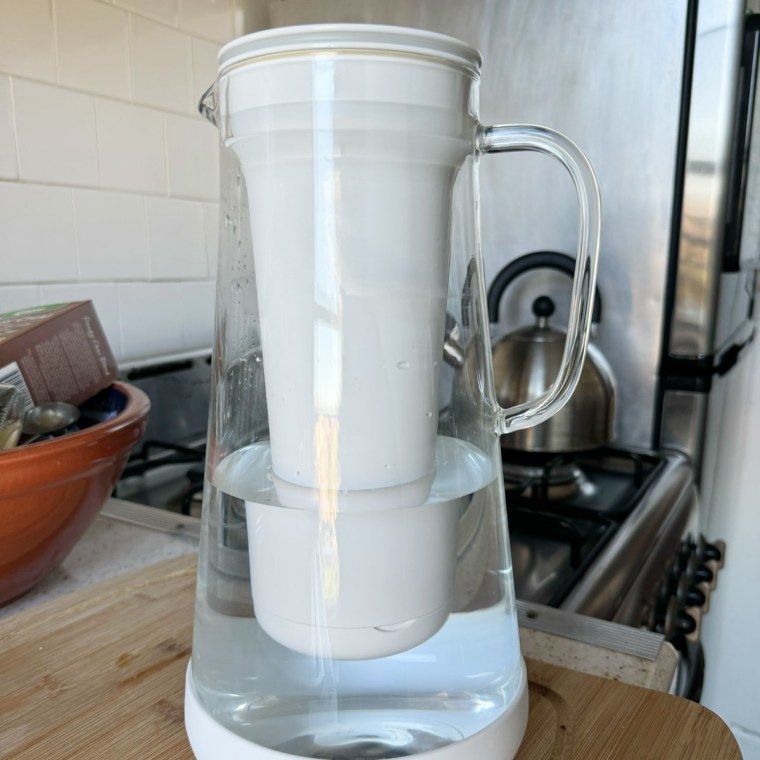
How to shop for water filter pitchers
When shopping for a water filter pitcher, experts say to prioritize these factors:
- Certifications: Both experts agree that checking certifications is an important step in purchasing a water filter pitcher, or a water filter of any kind. Certifications are usually on the filter’s packaging, product page, or brand website. Anderson recommends looking for certifications from independent, third-party certification agencies, like the IAPMO (International Association of Plumbing and Mechanical Officials), WQA (Water Quality Association) or NSF (National Science Foundation), to be confident that a product’s filtering claims are tested and proven to be true. “These certifications mean the product is regulated under higher standards and goes through periodic testing and recertification,” he says.
- Filter alerts: Both experts recommend pitchers with built-in replacement alerts, like a blinking light. “These are great because not everyone remembers to change the filter on a regular basis,” says Metzger.
- Filtration: According to Anderson, “the best water filter pitchers will have multiple stages of filtration to ensure the user is drinking the healthiest and purest tasting water.” The more filtration stages a pitcher has, the more TDS are removed and the cleaner your water becomes. As a general rule, it’s best to aim for a filter with two-stages of filtration or higher if you’re living in an area with a clean local water supply. However, if you’d like to learn more or double-check the level of filtration your water needs, experts suggest conducting a water test on your tap water. (More on how to do that below.)
- Volume: “The size and volume of your pitcher is another factor to keep in mind so the pitcher or dispenser works with your lifestyle,” says Anderson. Consider the volume of water you’d like to filter at once, whether or not the pitcher needs to fit in your fridge, etc.
- Water-testing: “I always suggest that [your] water be tested so you know what needs to be removed,” says Metzger. “This is especially important for those who have a private well, as the testing that is done is usually up to the homeowner and they’re typically not tested on a regular basis,” she says. Anderson suggests having your water tested by an EPA-certified lab for reliable results. To get your water tested and find out more information about home drinking water, you can visit the Environmental Protection Agency’s website.
Meet our experts
At NBC Select, we work with experts who have specialized knowledge and authority based on relevant training and/or experience. We also take steps to ensure all expert advice and recommendations are made independently and without undisclosed financial conflicts of interest.
- Doug Anderson has over 25 years of engineering experience and has been the senior director of global engineering and research and development at Culligan International for 12 years.
- Marianne Metzger has over 20 years of environmental-testing experience in water analysis and is the executive director of the Eastern Water Quality Association.
Why trust NBC Select?
Ashley Morris is an associate reporter at NBC Select, who regularly covers self care, home and lifestyle. For this article, she interviewed water filtration experts to get the best advice and recommendations on water filter pitchers and dispensers, including what to look for when shopping for one of your own.
Catch up on NBC Select’s in-depth coverage of personal finance, tech and tools, wellness and more, and follow us on Facebook, Instagram, Twitter and TikTok to stay up to date.
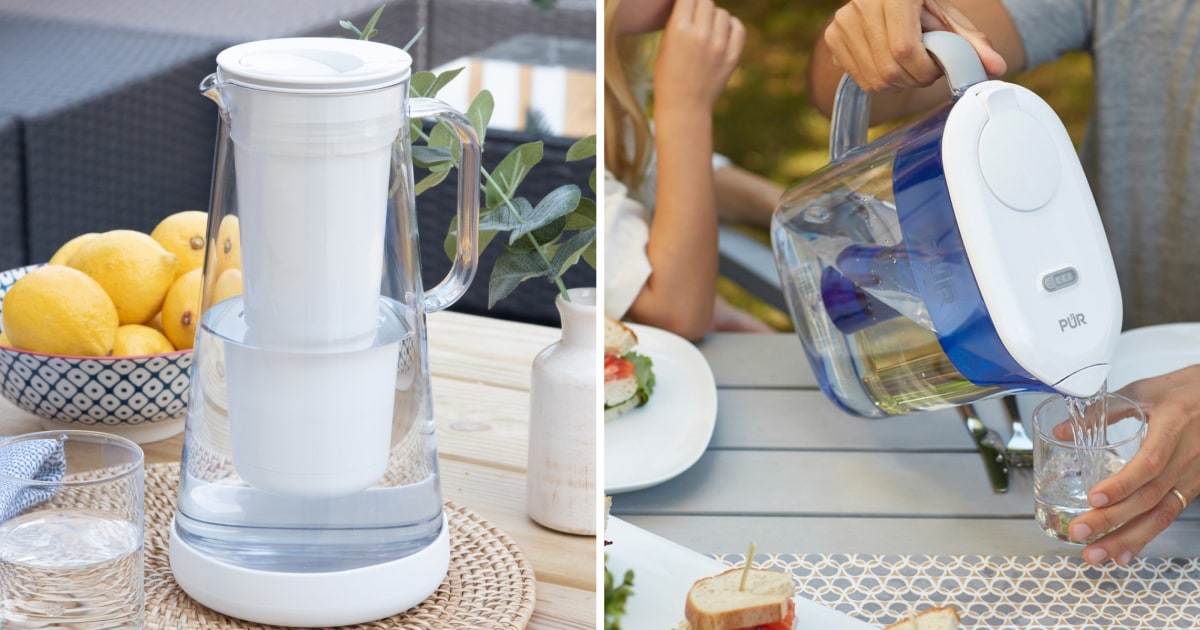
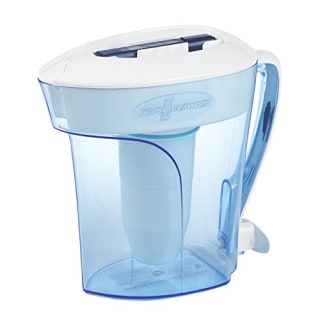
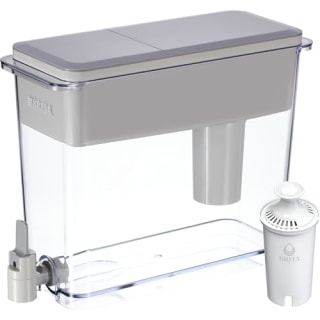
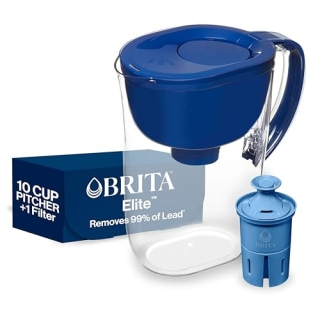
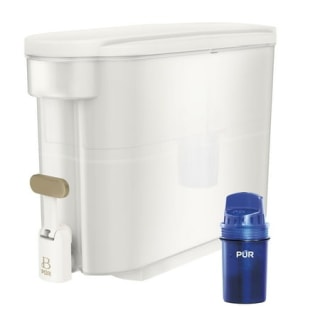
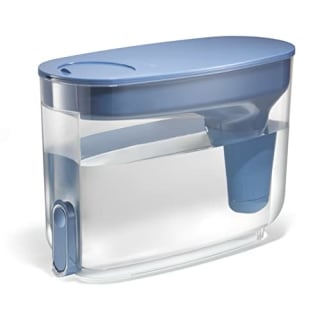
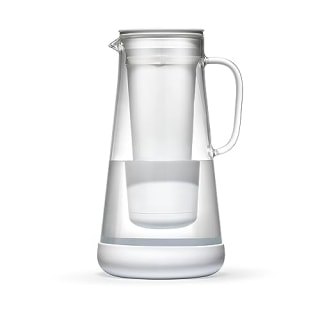
Leave a Reply